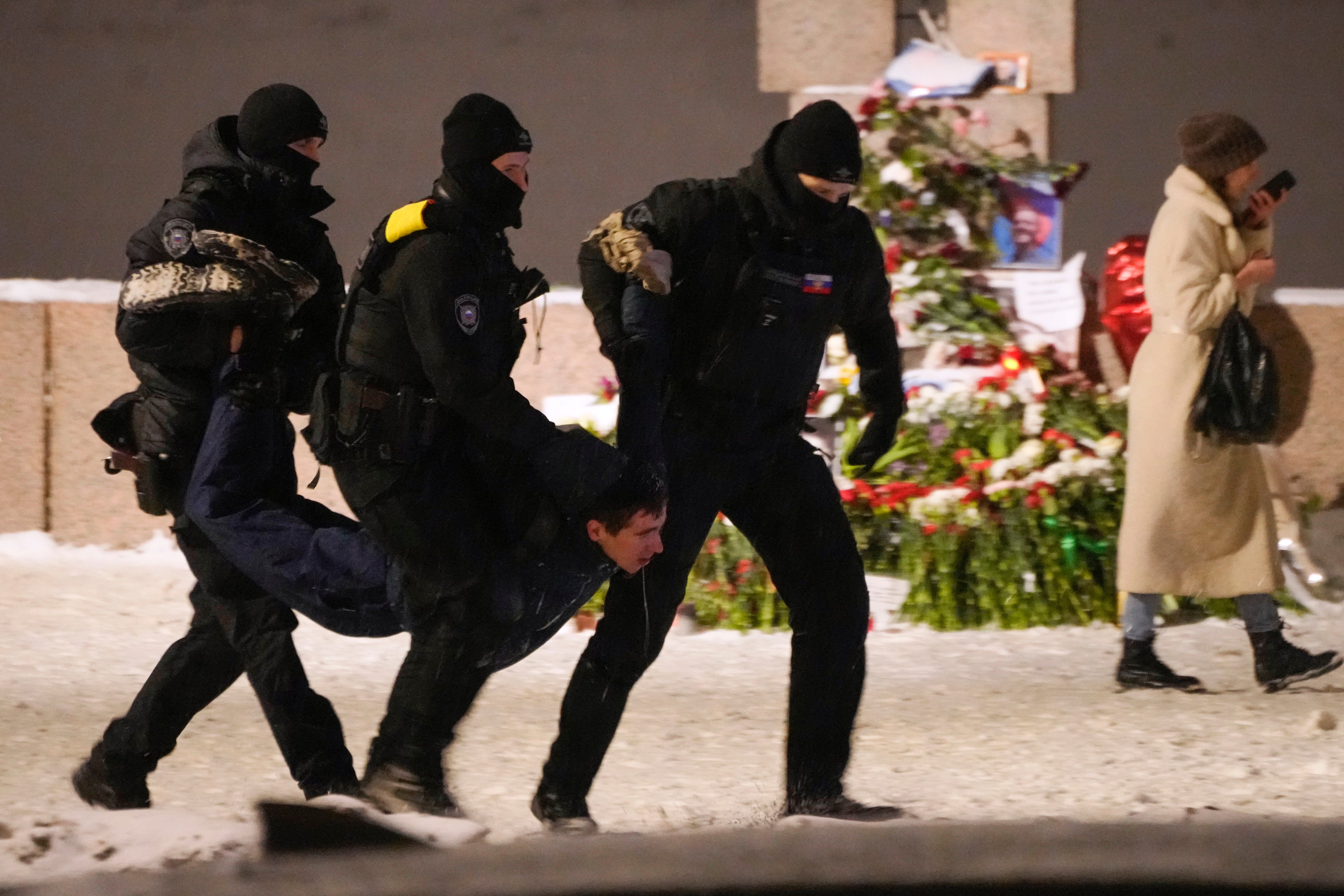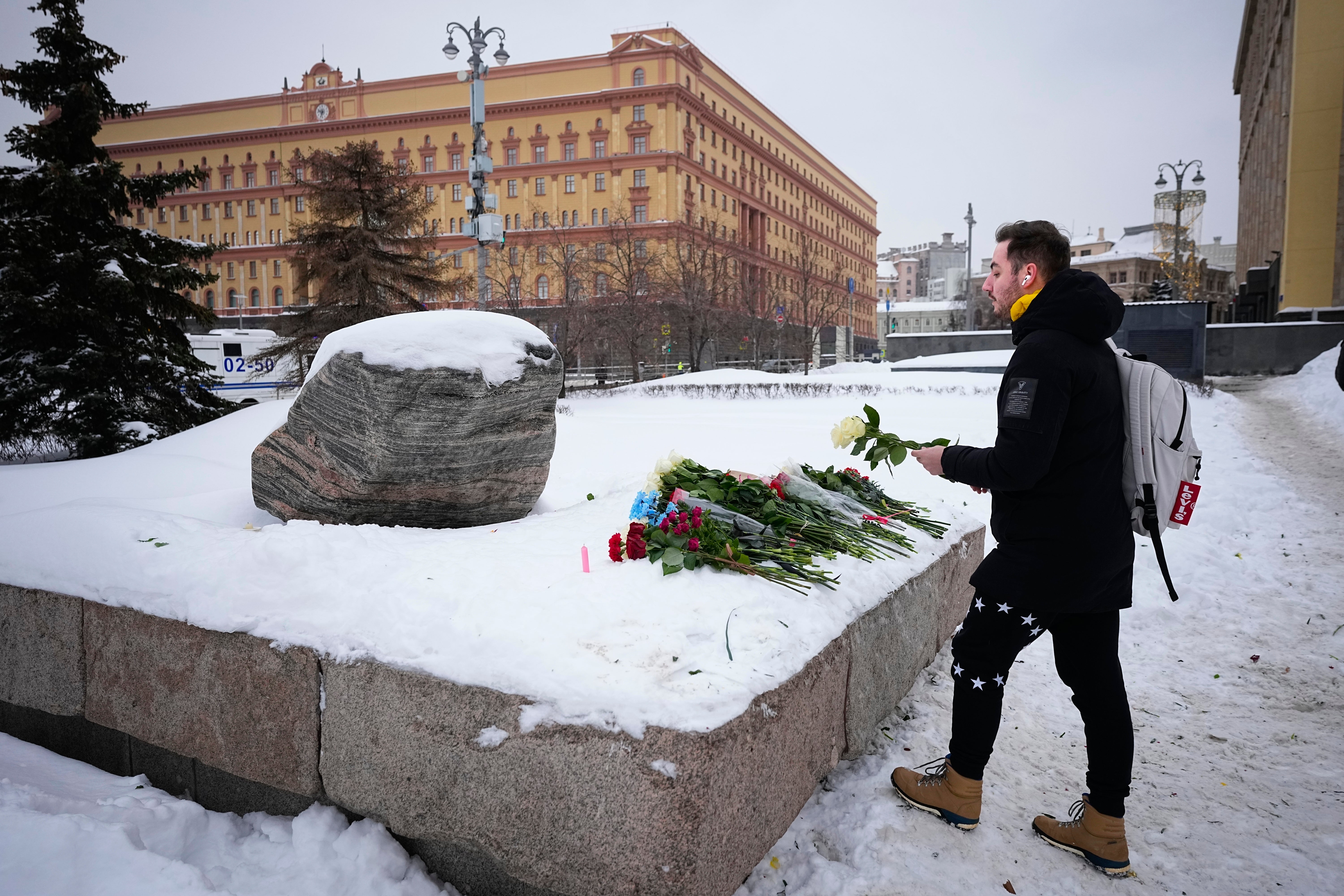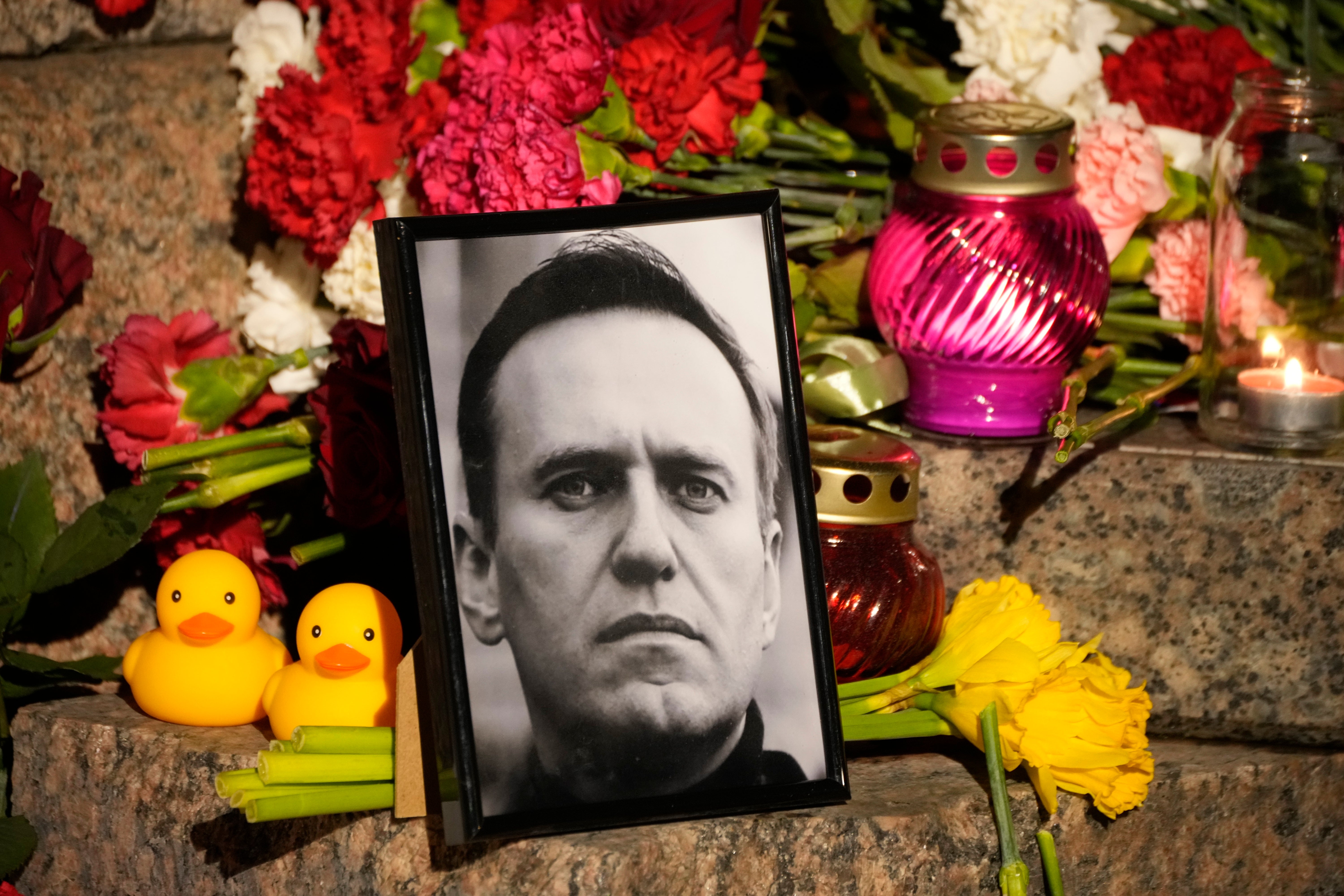Navalny tributes removed by group of masked men as Moscow police look on
More than 100 people were detained in eight cities across Russia
Floral tributes to Alexei Navalny, President Vladimir Putin's fiercest foe who died Friday in a Russian penal colony, were removed overnight by groups of unknown men while police watched, videos on Russian social media channels show.
More than 100 people were detained in eight cities across Russia after they came to lay flowers in memory of Navalny, according to OVD-Info, a group that monitors political repression in Russia. Russia's prison service said in the Arctic penal colony where he was serving a 19-year sentence. On Saturday, police blocked access to a memorial in the Siberian city of Novosibirsk and detained several people, OVD-Info said.

Videos and photos shared on Russian social media channels showed flowers being cleared from monuments to victims of Soviet-era repressions across Russia. In Moscow, flowers were removed overnight from a memorial near the headquarters of Russia's Federal Security Service by a large group while police looked on, a video showed. But by morning more flowers had appeared.
The news of Navalny's death comes less than a month before an election that will give Putin another six years in power.
It shows “that the sentence in Russia now for opposition is not merely imprisonment, but death,” said Nigel Gould-Davies, a former British ambassador to Belarus and senior fellow for Russia & Eurasia at the International Institute for Strategic Studies in London.

How did Navalny die?
Russia’s Federal Penitentiary Service claimed that Navalny felt sick after a walk Friday and lost consciousness at the penal colony in the town of Kharp, in the Yamalo-Nenets region about 1,900 kilometers (1,200 miles) northeast of Moscow. An ambulance arrived, but he couldn’t be revived; the cause of death is still “being established,” it said.
Navalny had been jailed since January 2021, when he returned to Moscow to face certain arrest after recuperating in Germany from nerve agent poisoning he blamed on the Kremlin. He was later convicted three times, saying each case was politically motivated, and received a sentence of 19 years for extremism.
After the last verdict, Navalny said he understood he was “serving a life sentence, which is measured by the length of my life or the length of life of this regime.”
Hours after Navalny's death was reported, his wife, Yulia Navalnaya, made a dramatic appearance at a security conference in Germany where many leaders had gathered.
She said she had considered canceling, “but then I thought what Alexei would do in my place. And I’m sure he would be here,” adding that she was unsure if she could believe the news from official Russian sources.

“But if this is true, I want Putin and everyone around Putin, Putin’s friends, his government to know that they will bear responsibility for what they did to our country, to my family and to my husband. And this day will come very soon,” Navalnaya said.
US President Joe Biden said Washington doesn’t know exactly what happened, “but there is no doubt that the death of Navalny was a consequence of something Putin and his thugs did.”
Navalny “could have lived safely in exile,” but returned home despite knowing he could be imprisoned or killed “because he believed so deeply in his country, in Russia.”
In Germany, Chancellor Olaf Scholz said Navalny “has probably now paid for this courage with his life.”
Bookmark popover
Removed from bookmarks